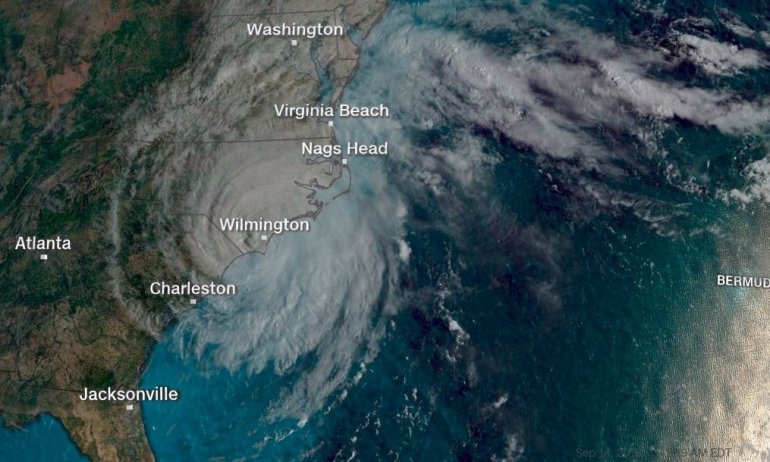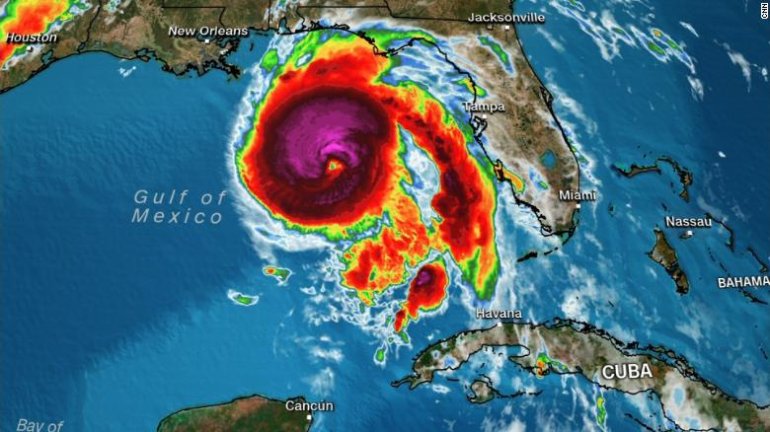After a destructive 2018 Atlantic hurricane season, two storms stood out above the rest in terms of devastation and death: Florence and Michael. Never again will these names have the chance to cause chaos in the Atlantic Basin.
On Wednesday, March 20, the World Meteorological Organization’s (WMO) Region IV Hurricane Committee, which includes the National Hurricane Center, announced the names of these two storms would be retired from the list of names.
Storm names are retired if a storm is so deadly and destructive that the future use of the name would be insensitive — otherwise, names are reused on a six-year cycle. 2019 will be the first year that the name Imelda is used in the rotation, replacing Ingrid which was retired after the 2013 hurricane season. In 2024, the names Francine and Milton will replace Florence and Michael.
Including this year’s retirees, 88 storms have been retired from the lists used in the Atlantic Basin since 1953 when storms began to be named. The 2005 hurricane season holds the record for the most names retired from a single season: five. They are Dennis, Katrina, Rita, Stan, and Wilma.

Hurricane Florence, one of the deadliest and costliest hurricanes to ever hit the Carolinas, made landfall near Wrightsville Beach, North Carolina, on September 14 and moved slowly inland with heavy rain, storm surge, and record flooding. It caused at least 51 deaths and produced extensive flooding across much of the Carolinas and Virginia.

The next month, Hurricane Michael made landfall near Mexico Beach, Florida, on October 10, with sustained winds of 155 mph. This was the third most intense hurricane to make landfall in the contiguous U.S. based on central pressure, and the fourth most intense based on wind speed. It was also the most intense hurricane on record to make landfall along the Florida Panhandle, where it caused widespread devastation and farther inland across Georgia, the Carolinas, and Virginia. There were at least 45 fatalities blamed on the storm in the United States.




























